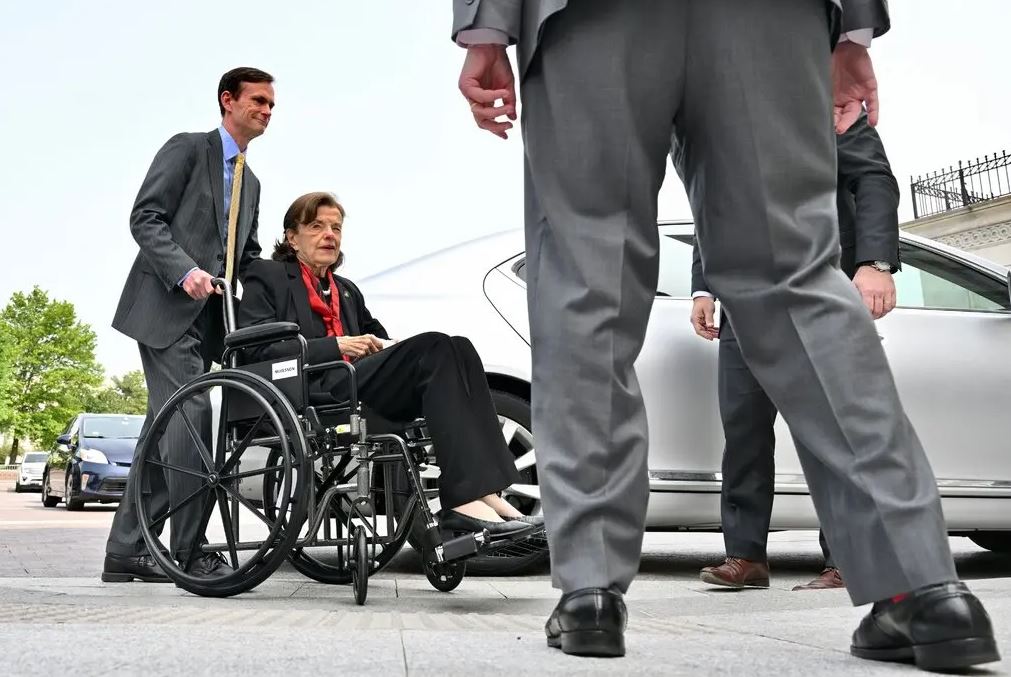California Democrat Dianne Feinstein has been out of commission for more than two months due to shingles, yet she only recently returned to work. The severe rash-causing illness is caused by the chickenpox virus, which remains dormant in the human body and may reactivate at any time, even decades after the first infection.
Ms. Feinstein, 89, was diagnosed with encephalitis, an uncommon but potentially serious condition that occurs when the brain swells, due to the infection. An infection or an immunological reaction might trigger this syndrome.
Confusion, a stiff neck, a headache, a sensitivity to light, nausea, and vomiting are all possible side effects of post-shingles encephalitis.
Some patients may also have longer-term complications. Problems with memory or language, insomnia, depression, difficulties walking, and other mental health issues are all examples. Patients of advanced age often have the most challenging recoveries.
Some instances are less severe than others. Approximately one-fifth of the severely sick patients with the illness were profoundly incapacitated and one-third had died a year after being hospitalised, according to a French research from last year.
Separate research from Denmark in 2020 indicated that three months after being released from hospitals, about half of individuals with post-shingles encephalitis were at least significantly handicapped.
Less than one percent of shingles patients develop encephalitis, according to Dr. Adrien Mirouse, a physician and immunologist at Sorbonne University in Paris who conducted the French research last year.
However, he cautioned that it was difficult to accurately assess rates since many mild episodes of shingles and post-shingles encephalitis went unreported.
Historically, it was believed that only shingles patients with compromised immune systems had brain edoema. However, new research has shown that many patients are merely dealing with age-related deterioration of the immune system as part of their daily routine. Experts have speculated that the condition’s prevalence would rise as the world’s populations age.
It is unclear why some people who have shingles have a better prognosis than others if they end up with encephalitis. There seems to be a correlation between becoming older and an increased chance for more severe issues.
However, case reports have shown people as young as in their teens who exhibit improvement in their cognitive abilities, only to have them decline again.
“You may have some symptoms that last after the encephalitis,” Dr. Mirouse warned patients. It’s unlikely that you’ll make a full recovery. That’s true whether you’re 89 or 30, or even if you’re only 20.
Since shingles’ spread to the face and neck increases a patient’s risk of encephalitis, Ms. Feinstein may have been at increased risk for developing brain inflammation.
Dr. Sharon E. Curhan, a physician and epidemiologist at Brigham and Women’s Hospital and Harvard Medical School, is researching the connection between shingles and changes in cognition. She notes that shingles can contribute to cognitive decline in other ways, including by damaging brain blood vessels.
According to research released last year and headed by Dr. Curhan, shingles patients have a dramatically increased long-term chance of suffering a stroke, a disease that may contribute to cognitive deterioration.
The shingles vaccination that Ms. Feinstein got offers excellent protection against the virus and the problems that might develop as a result. The vaccination is recommended by federal health experts for individuals aged 50 and above, as well as younger folks with compromised immune systems.

